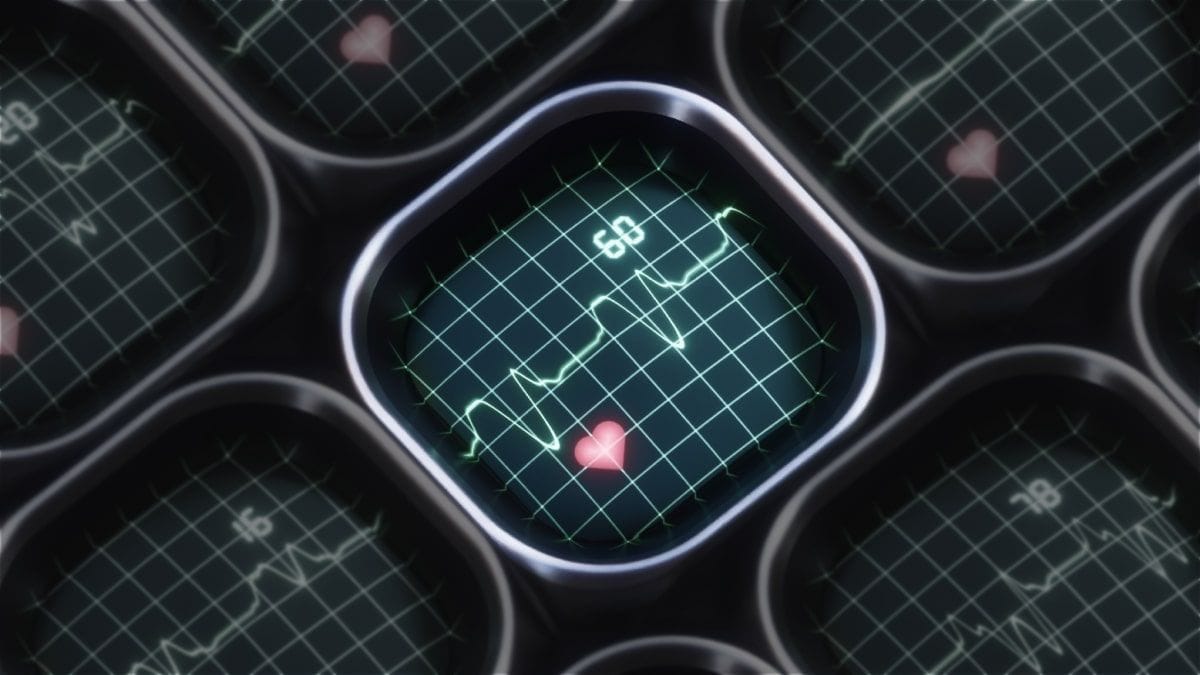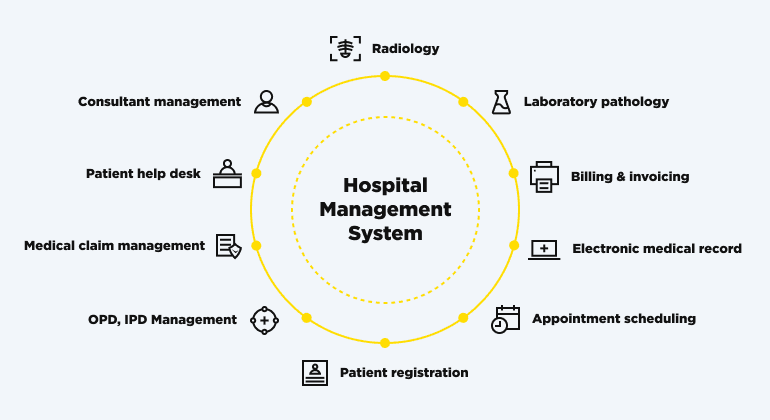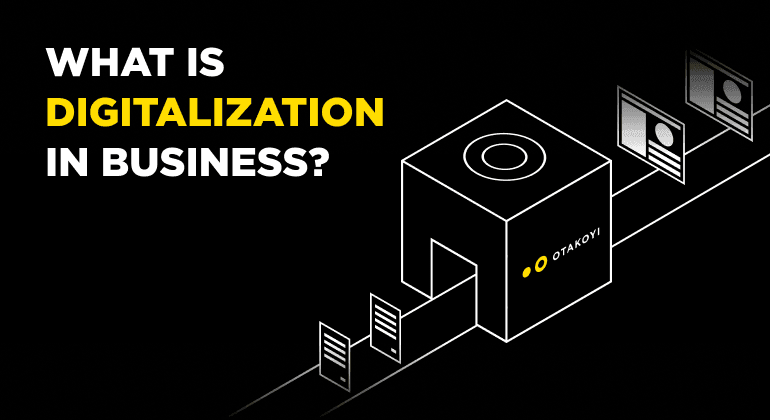Top 10 of the Most Game-Changing Software for Healthcare Practitioners
The year 2020 was revolutionary for the healthcare industry. The drastic measures of COVID-19 have spiked demand for innovative solutions to help improve patient care and keep citizens connected to local medical professionals.
In 2021, the global healthcare applications market witnessed a growth of 10.1%, reaching almost $26.7 billion in revenue from healthcare licenses, maintenance, and subscriptions, with the top 10 healthcare software vendors collectively representing nearly 42.9% of the market.
The updated forecast states that the healthcare applications market is expected to reach $29.1 billion by 2026.
The demand for digitalization in the medical industry through SmartCare software for healthcare providers is rising. This means it’s your sign to get on board and find solutions to optimize your clinic, doctor’s office, or hospital. Let’s explore which types of healthcare software are the most popular now.
Healthcare Software: What Is It, and How Many Types Are There?
Healthcare software refers to computer programs or applications created for medical field organizations and facilities. The goal of software for healthcare providers is to optimize and automate medical-related processes and tasks, from storing medical records and improving customer relationship management to building an organ 3D model and optimizing medical devices.
The start of the global pandemic pushed the developers into creating even more efficient and complex solutions like telemedicine or encryption software for healthcare providers to elevate medical services and improve patients’ safety.
Here is the list of the most popular types of medical software you should know about.
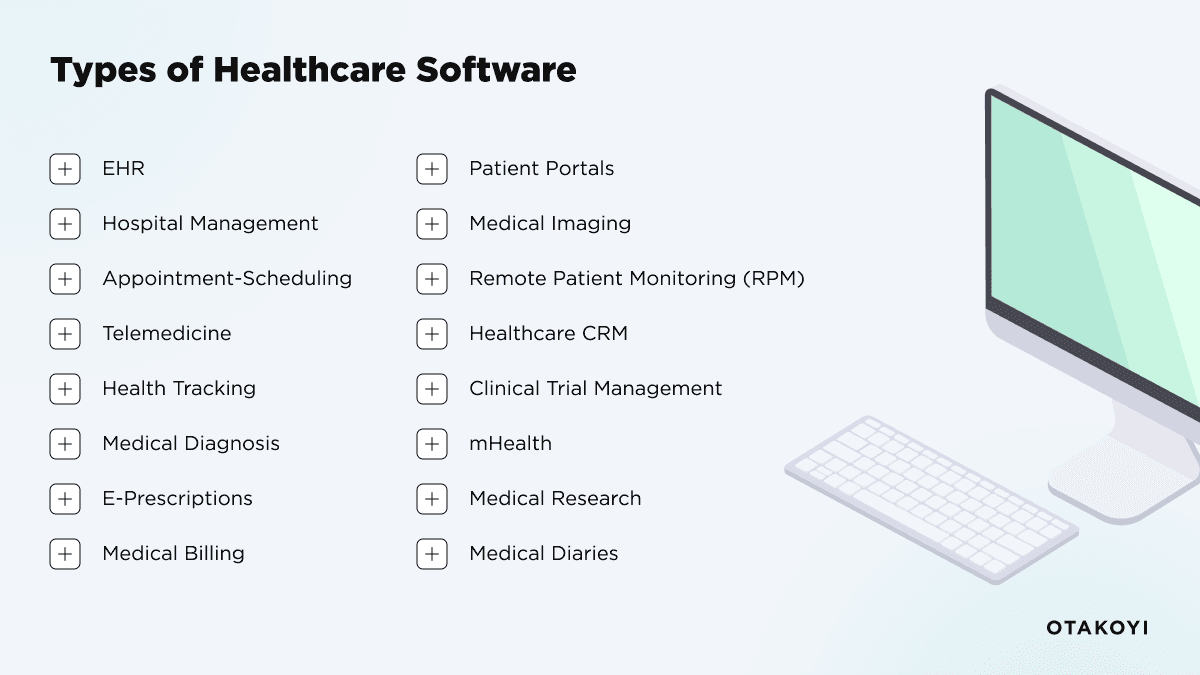
Electronic Health Records (EHR)
At the top of the list is EHR (electronic health records) or EMR ( electronic medical records), the essential healthcare software solution. It’s hard to imagine a hospital, medical office, or clinic without an EHR system. Instead of keeping tons of documents on every patient, EHR software collects all patients’ information, such as their medical history, previous treatments, allergic reactions to medications, and doctors’ recommendations. EMR software for integrative healthcare providers connects all the records from the various medical facilities and offices to ensure the doctors are up-to-date with recent laboratory test results, previous diagnoses, or prescription drugs. Keeping a digital medical record has a significant impact on the quality of patient care and the accuracy of the selected treatment.
Additionally, developers can integrate many useful tools in the EMR that allow medical professionals to:
- Connect with patients;
- Provide billing for medical services;
- Use e-prescribing tools;
- Get evidence-based decision-making support;
- Stay connected to other medical offices, labs, etc.
Hospital Management Solutions
A hospital or a clinic is not just a healthcare provider. It’s a business. As with any business, it needs to run smoothly. Hospital management software is what keeps the medical facilities running as a clock. It provides management capability to the administrative team, medical professionals, and patients.
Well-optimized HMS includes two portals, one for hospital staff and one for patients.
The management panel should include the following to optimize the medical facility processes and take the workload off the practitioners:
- Room booking and schedule;
- Food and inventory management;
- Doctors timetable;
- Utility management;
- Other tools to simplify administrative tasks;
- Even marketing for healthcare providers’ software.
The patient portal may include the following:
- Online registration forms;
- Diagram insurance or billing information;
- Latest diagnosis and recommended treatments.
Appointment-Scheduling Software
The purpose of appointment booking software is self-explanatory: to help medical facilities optimize the visit scheduling process and streamline the doctors’ workload. Such types of healthcare software serve practitioners, hospital management, and patients. Digital appointment systems help registration staff at medical facilities to communicate with visitors, inform doctors on time of any changes, and control the availability of medical services, avoiding creating long waiting lines. Yet, patients have even more perks from appointment-booking apps or software, such as:
- Notifications about upcoming visits;
- Tools to cancel or reschedule the appointment;
- The ability to send selected doctors required relevant documents beforehand, like lab results, insurance, and medical history.
Telemedicine Software
Another medical software on the rise after the COVID-19 breakout is telemedicine solutions. As an alternative to traditional doctor's visits, telemedicine software connects patients with local practitioners online for virtual appointments. Such telemedicine service platforms make healthcare more accessible for people living in distant rural areas, help patients get urgent medical advice, and take the workload from medical staff. Telemedicine software usually includes appointment-booking tools, medical billing features, or e-prescriptions. Yet, it’s crucial to remember telemedicine platforms have their limitations, as some health issues cannot be cured online.
Health Tracking Apps
Personal health trackers don’t belong to professional types of healthcare software, yet they provide additional information to practitioners to generate an accurate diagnosis. A health tracking app is usually paired up and connected to a wearable device, like a fitness watch, that collects regular health data during the day, like heart rate and physical activity. The modern healthcare software market offers a wide variety of personal health apps that focus on different aspects of well-being, such as diet, fitness, women’s health, mental health, etc. Health trackers help doctors and patients monitor the treatment progress and faster detect any new developments by allowing users to keep track of their symptoms and collect health data.
Medical Diagnosis Software
Medical diagnosis software leverages artificial intelligence to analyze anonymized patients’ records to generate medical diagnoses and best-suited treatments based on authorized and credible sources. Such solutions stimulate decision-making and help doctors avoid making crucial mistakes. Adopting medical diagnosis software empowers hospitals and clinics to provide excellent medical services and guarantees patient safety at any time.
E-prescriptions Solutions
E-prescriptions have gained more demand and popularity among healthcare software, becoming a must-have tool for any doctor worldwide. Such systems make medical practice more efficient for both professionals and patients.
E-prescription software has several game-changing features, allowing practitioners to:
- Prescribe meds online;
- Redirect orders directly to the pharmacy, where they will be ready for pick-up;
- Renew or cancel prescriptions in one click.
Medical Billing Software
Medical billing solutions, in most cases, a part of a larger system like EHR or hospital management system. Fairly self-explanatory, billing software allows accounting and administrative hospital staff to manage and track all financial operations in the facilities.
Patient Portals
Patient portals are a part of electronic health records systems where users can access their private health data, see the latest updates, advise with doctor recommendations, check treatment details, and more. Patients portals software is crucial for the healthcare industry as it brings transparency between medical organizations and regular citizens.
Medical Imaging Software
Medical 3d imaging software aids medical practitioners in dental care, radiology, orthopedic care, and more. Leveraging Artificial Intelange and Machine Learning, medical imaging software can process CT/MRT/PET scans to visualize them in the 3D model and give a medical professional a better understanding of the issue.
Medical imagining software is a new revolutionizing directory for the healthcare industry, with huge potential in growth and technology solutions. With a 3D imaging software permit, practitioners can create tailored artificial body parts, like limbs or coronary stents.

Ready to build your Healthcare software?
Contact usRemote Patient Monitoring (RPM)
Remote Patient Monitoring (RPM) is a brand-new solution in modern healthcare technology. This software involves the use of digital devices to collect medical and health data from patients in one location. Right after collecting the data, it is transmitted securely to healthcare providers in another location. Healthcare professionals are able to assess everything and provide their recommendations.
This solution stands as a game-changing tool, especially in managing chronic conditions and post-acute care. It gives healthcare providers an opportunity to keep track of patients' vital signs, medication adherence, and overall health status without the need for frequent in-person visits. What are the benefits? It obviously enhances patient convenience and comfort and allows for early detection of any concerning issues. As a result, it leads to proactive interventions and improved health outcomes.
Healthcare CRM Software
We cannot deny the importance of maintaining strong relationships with patients. That is where Healthcare Customer Relationship Management (CRM) software comes in. It ensures facilitating communication, engagement, and personalized care delivery. The main functions that medical providers are able to benefit from are the options to manage patient interactions, track preferences, and streamline administrative tasks.
One of the greatest features of this solution is that it centralizes patient data and communication channels. As a result, healthcare providers can efficiently deliver tailored care plans, anticipate patient needs, and foster long-term patient loyalty. The common functions are scheduling appointments, visit reminders, post-visit follow-ups, conclusions, the next suggested visit, etc. Patients become much more satisfied with the services, and it consequently strengthens the provider-patient relationship.
Clinical Trial Management Software
Clinical trials are essential for maintaining advancements in medical research and developing new treatments and therapies. However, it is rather challenging and time-consuming to manage them. However, technological development has suggested a solution in the form of Clinical Trial Management Software (CTMS). This tool optimizes the whole clinical trial process. It covers all the stages, from study planning and participant recruitment to data collection and analysis.
CTMS makes it much easier for research teams to manage study protocols efficiently, track participants involved, check the progress, and ensure compliance with regulatory requirements. This software gives real-time insights and automates manual tasks. Thus, all the results and ongoing data are more efficient, accurate, and transparent. As a result, we are able to witness faster medical innovation and bring new treatments to market on time.
Mobile Health (mHealth) Apps
All the mobile apps have changed the way we live and provide or get services. The same goes for the healthcare industry. Mobile Health (mHealth) apps have revolutionized the way people engage with their health and wellness and have streamlined their interactions with medical institutions. In most cases, such apps are accessible via smartphones and tablets, which makes them super user-friendly.
Patients are able to monitor their health, track fitness goals, and access medical information and services anytime, anywhere. Moreover, they can set various reminders or install symptom trackers. It makes it easier and more effective for doctors to look after their patients and support the proper level of preventive care, chronic disease management, and overall well-being. Both sides can easily follow various treatment plans, have access to vital data on the go, and feel more in control over their health journey.
Medical Research Software
We have already mentioned the type of software used in healthcare that simplifies clinical trials. However, there is one more software that boosts scientific progress and healthcare innovation. Medical Research Software opens the door for researchers to powerful tools and resources that accompany them on their way to conduct, manage, and analyze research studies effectively.
MRS (Medical Research Software) can be customized and includes features like data collection, experimental design, statistical analysis, and publication management. Whatever the stage of medical research, it streamlines every single aspect of the research process. Moreover, it simplifies the collaboration among team members, automates repetitive tasks, accelerates the speed of discovery, and enhances research outcomes. This software is great for both academic and medical purposes.
Personal Health Record Software (Medical Diaries)
Personal Health Record (PHR) software, also known as medical diaries, motivates patients to take a proactive role in managing their health information. What can they use it for? Individuals can securely record and organize their medical history, track diagnoses, follow medications, get electronic prescriptions, react to allergies, and remember immunizations.
This healthcare software product gathers health data from multiple sources, such as healthcare institutions, pharmacies, and laboratories. An individual’s health status becomes more comprehensive and accurate. Overall, it leads to more informed decision-making, improved care coordination, and better health effects.
How to Choose the Right Healthcare Software for your Organization?
There is no simple answer. As you can see, software for healthcare providers varies in functionality, end-user, and features. Yet all the mentioned types of healthcare software can empower hospitals or clinics as businesses and medical care providers.
First and foremost, you should identify specific needs and goals you expect the healthcare software solution to meet.
Avoid falling for flashy marketing and choosing products that don’t fit your organization’s workflow. Prioritize functionality and cutting-edge features that help your hospital or medical office optimize crucial work processes, provide exceptional healthcare for your customers, and increase revenue.
Lastly, don’t be penny-wise. The medical software cost can be budget-stretching, but they shouldn’t be the deciding factor. Digital healthcare solutions can save you time and money in the long run, yet low-quality products can cost human life and health.
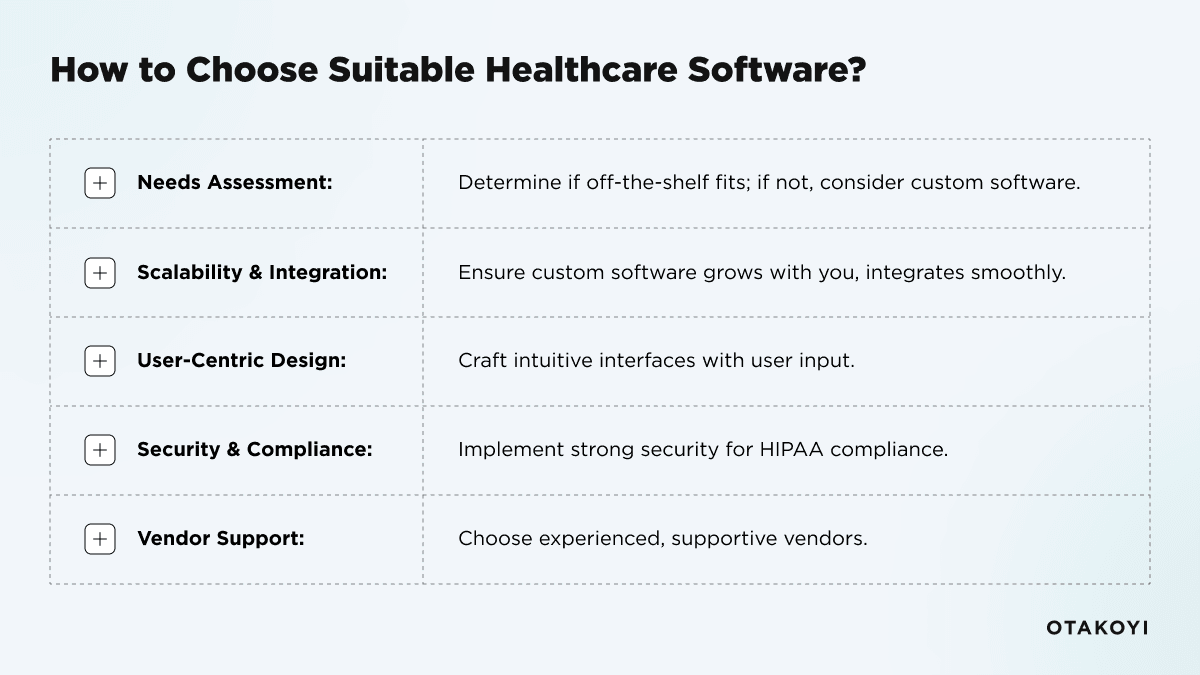
Choose experienced healthcare software providers for hospitals like OTAKOYI to find unique, tailored solutions that combine all essential and must-have features in one product. At Otakoyi, we have skilled developers with deep knowledge of the healthcare industry and a passion for revolutionizing the medical field. By cooperating with the Otakoyi team, you can stay ahead of the curve with the following:
- Innovative telemedicine solutions to make your service accessible at any place and time;
- Customized EHR and hospital management systems to help your business grow;
- Optimized medical billing and e-prescription tools to take the workload off of your medical staff;
- Easy-to-navigate appointment-scheduling system to connect better with your patients;
- Engaging health tracker apps to provide your customer tools for personal health care;
- Reporting and analytical tools to compile records and keep track of the facility’s performance.
